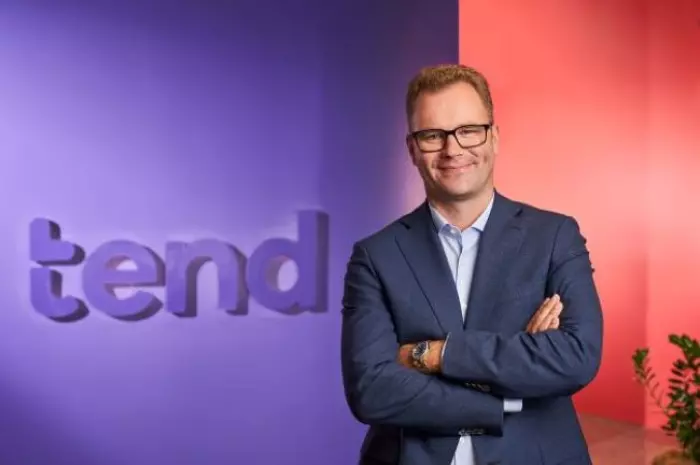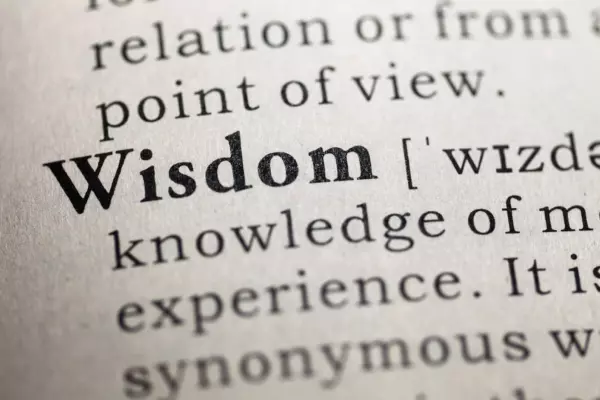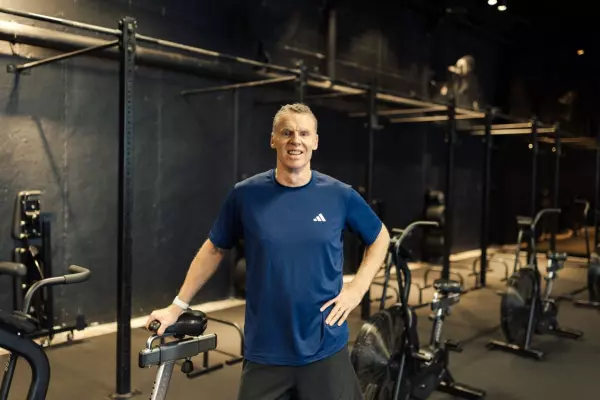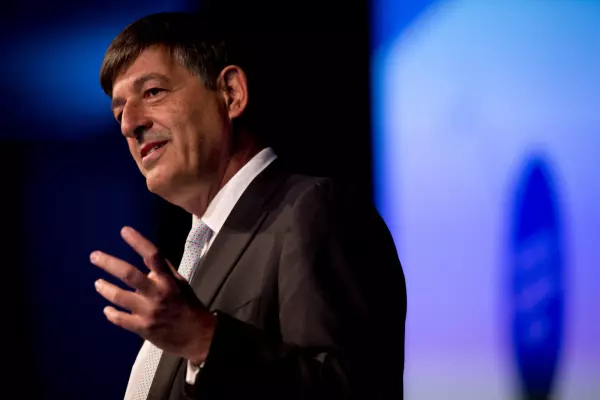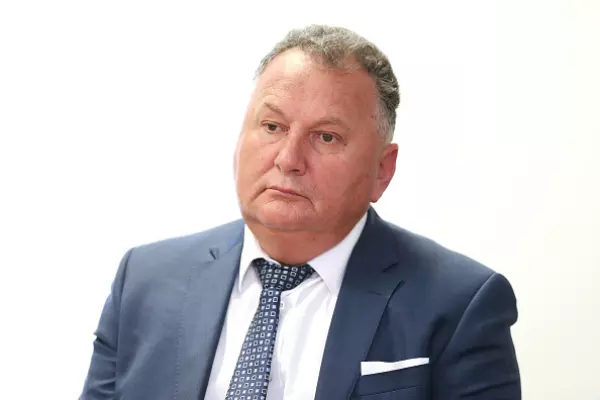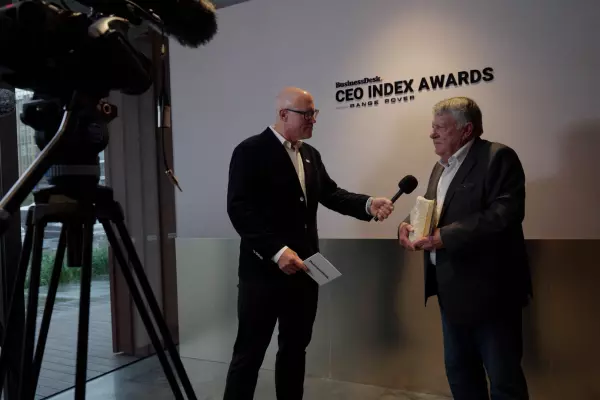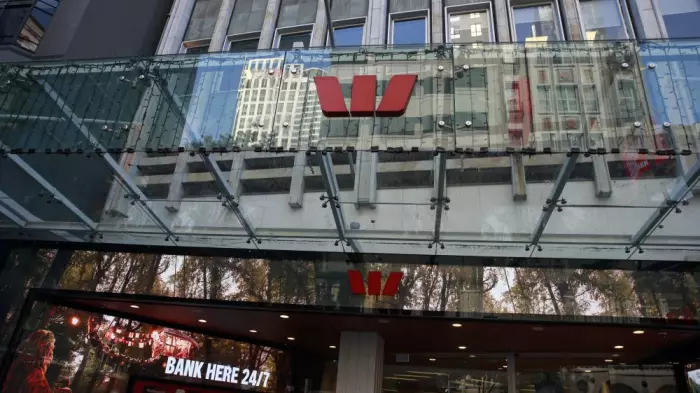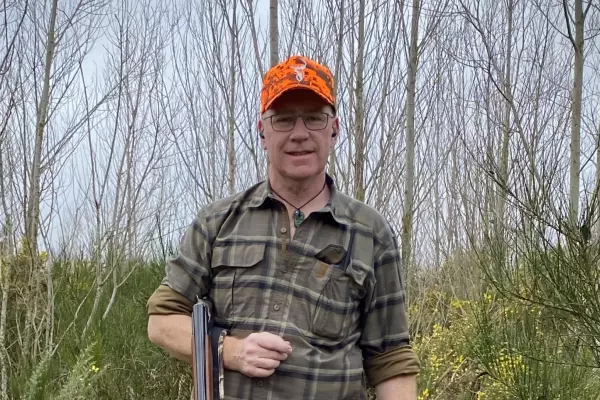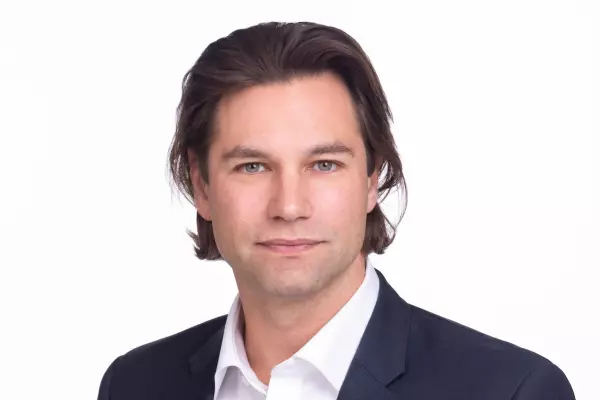Welcome to My Net Worth, our regular column on the lives and motivations of our country’s top business, legal and political people, in their own words
James Robinson grew up in northern Hawke's Bay and attended a te reo Māori immersion school. As a boy, he dreamed of being a potter. Instead, he became an entrepreneur, but still has a passion for art, and now enjoys supporting young artists. He is – in his own words – entrepreneur Cecilia Robinson’s partner in life and business. The couple co-founded My Food Bag, Au Pair Link and Tend Health, and he has run the marketing, digital and finance teams of each company. In 2016, the Robinsons and their three founding partners in My Food Bag sold a majority stake to a private equity firm, a decision he says he now regrets. Tend Health, his latest venture with his wife, offers clients online or in-clinic appointments with its team of doctors and nurses.
I grew up on a farm in Whakakī, outside of Wairoa. It was a really diverse part of New Zealand and had a really strong local Māori community. I went to an immersion school which was called Whakakī School, but it doesn't exist anymore.
I was quite creative when I was young. I used to go up to the back of our farm which had an area where there was pretty sticky clay and I used to turn that into pots and do pottery. At seven, I wanted to grow up to be a potter or an artist. I had a really strong creative bent and I think that's probably flowed through into starting up and running businesses.
Ours was a very middle-class family and my parents really cared about what they did; they always tried to do their best and they taught me to do the same. And I think that certainly rubbed off on me. So, no matter what you're doing, give it your all.
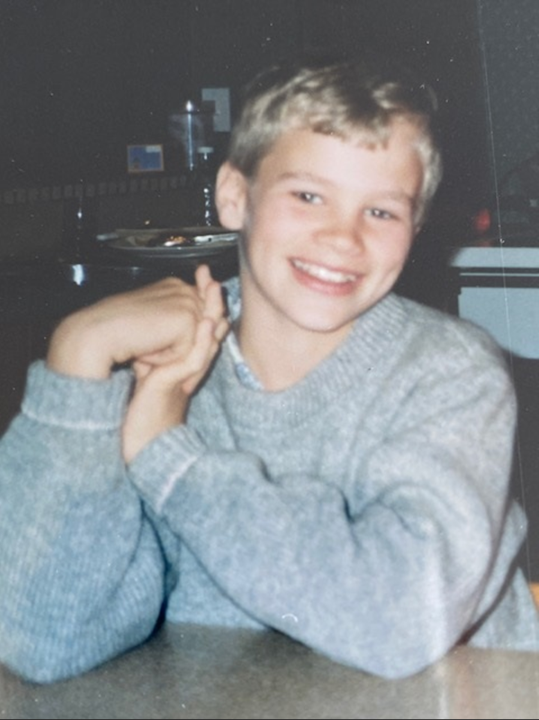
James Robinson as a nine-year-old schoolboy growing up in northern Hawke's Bay. I was a pretty good student, and I don't think I would have been on the naughty list. I was a real perfectionist at school and used to get the absolute top grades for assignments because of all the time and extra effort I put in. But my exam work wasn't very good because I was so focused on being perfect. My wife is very fast – she was the first to leave the exam room and I was the last.
A lot of people over the years have told me they could never work with their partner or their wife as it would drive them nuts. For us, what I keep repeating is, look, business is really about trust. The whole monetary system is trust. And if you work with someone you just implicitly love and trust, then I actually see that as a strength.
We're a really close family. Cecilia and I are really tight and love spending time with the kids. We genuinely do. Our special place is Waiheke Island. It's got great food, lots of artistic places, beautiful beaches, excellent wine, good fishing, and safe boating. It rolls a lot of our interests into one location.
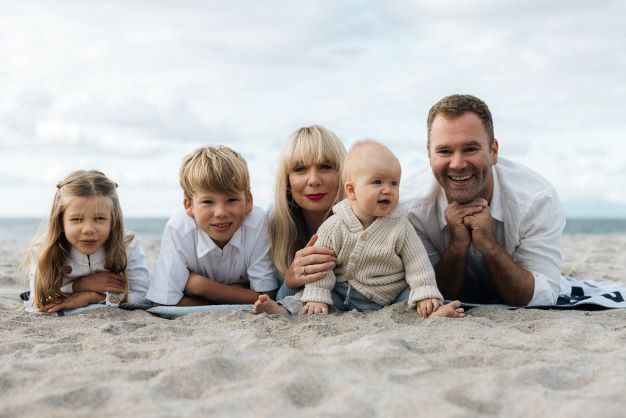 James and Cecilia Robinson with their children Leila, 6, Thomas, 10, and Charlie, 11 months.
James and Cecilia Robinson with their children Leila, 6, Thomas, 10, and Charlie, 11 months.Business is about doing things you love with people you love and places you love. At Tend, we're working with people we really love and trust. There's a strong value alignment. This is a 100-year business – we're not interested in short-term financial gain. That's not what we're after; we've achieved that previously in our careers.
What surprised me about jumping into the healthcare world? A number of things, to be honest. I think healthcare can be quite competitive, which is interesting. I would have assumed it would have been a little bit more collegial but there are a lot of people who have a vested interest in protecting the status quo. I think that's where healthcare needs really strong leaders entering the sector, not just in the public sphere but in the private sphere, too, to drive change.
I often get asked about starting up businesses, and about entrepreneurship. I think the best advice around that is to just start. You're just talking about it until you start. It's the only way you'll know if you can do it. You'll start and you'll go, "Oh, actually, that's not working. So, we'll change it into this," and you start to evolve. And when you come in contact with customers who give you feedback and might not like things or might love things, that's when you start to learn. My biggest advice for anyone is just to have the courage to start.
My biggest failure? Well, this will be contentious, but my biggest failure would be our succession plan and our exit in 2016 out of My Food Bag and selling that business to private equity. That's because, ultimately, there was a value misalignment; we were customer-obsessed and focused on innovation, but that's not what private equity is about.
When I look back on the decision to sell 70% of My Food Bag to private equity, if we had better understood those processes at that point in time, we would have placed more emphasis on choosing a partner that we had stronger value alignment with.
Private equity is very good at creating profits and returns for investors, but in terms of long-term strategic commitment to businesses, investing for future growth, innovation, and customer obsession, those are things that Cecilia and I have made a career in. And those aren't values that are shared well in most private-equity firms.
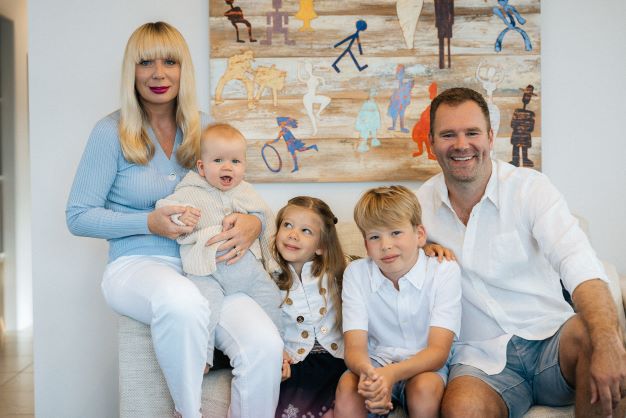 The Robinsons at home.
The Robinsons at home.What really motivates us now is to create lasting change in the healthcare sector for New Zealanders. And we think we can help with that. It's a big sector, and it requires a lot of people to work together to achieve those outcomes. We're happy to put our hands up and be part of that.
Our stated purpose for Tend is to make New Zealanders the healthiest people in the world. To do that, you have to be committed to that vision for a long period of time. Can we change things in 30 years? I think we can. Our covid-19 response gives us a clue, to how in a small country like New Zealand – of five million people – when we really focus on something together, we can have extremely high coverage and compliance.
By 2050, something like 25% of our population will be Māori. And if we're not focused on delivering services with clinicians who culturally identify with those communities, we're not going to get the best healthcare outcome. So, I think that’s incredibly important.
Don't ever retire. You should never try to. I mean, it might sound good, but actually, you just have to keep reshaping your purpose. And it doesn't matter how old you are, you just keep reshaping your purpose and that purpose might eventually reshape into family and your community. But for us, our purpose has really reshaped into making a difference for New Zealand in healthcare. And that's exciting. It's not a challenge that you can overcome in three, four, or five years.
I don't buy much for myself, that’s the reality. I have to be forced into buying new clothes. But probably the one thing I do enjoy buying is art. I still have that passion for art from my childhood and really enjoy supporting young artists as well.


